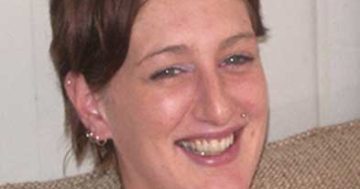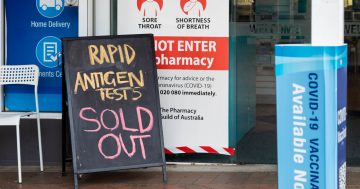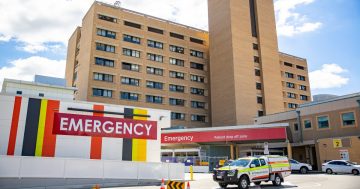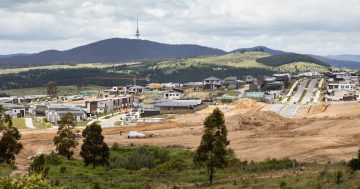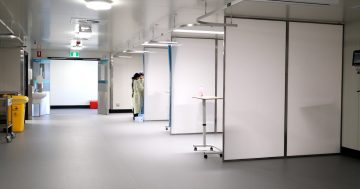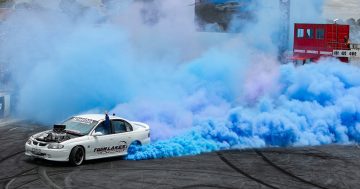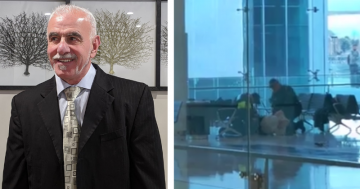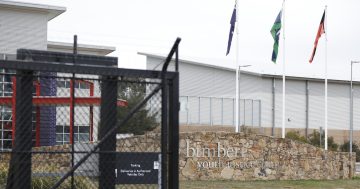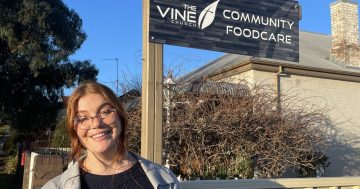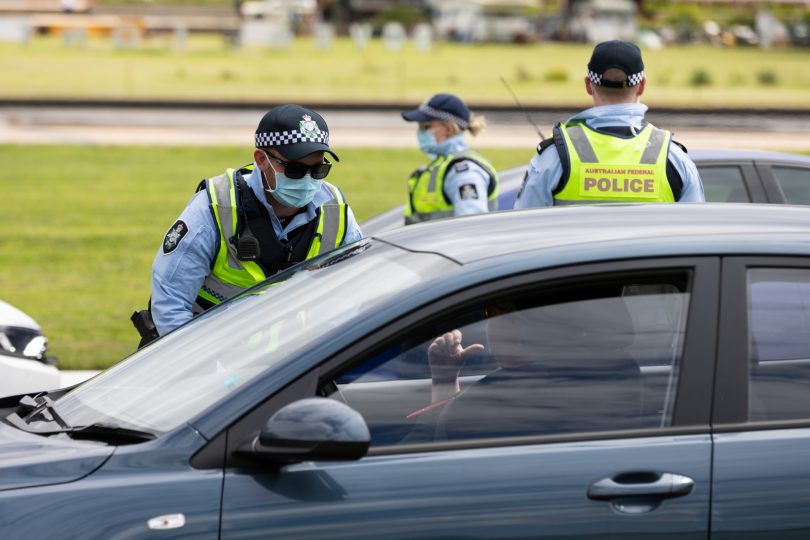
AFP conducting a COVID-19 license check at King Edward Terrace, Parkes ACT. Photo: Michelle Kroll.
Due to unique circumstances, I am one of those Canberrans who had to endure a daily COVID-19 checkpoint at the NSW border in the week after New Year’s Eve.
I live northside, just minutes from the Federal Highway, and I own a horse that is agisted in Sutton, just past Eaglehawk. So my usual 10-minute trip from horse to home turned into an at-times hour-long wait at the checkpoint set up at the Eaglehawk lookout.
Being the law-abiding citizen I am, I had no issues waiting for police to check my license and ascertain I wasn’t from a COVID-hotspot. I firmly support any measure that keeps the virus out of Canberra and helps our local businesses stay open without further lockdown measures for as long as possible.
I was ready and waiting with my license the first time I approached the checkpoint, prepared to explain where I had been and submit to a temperature test, or whatever else they were going to use to determine the risk I posed to the rest of the community.
So I was a little miffed when, after a question about where I had been and a glance at my license, I was waved through. The fourth or fifth time this happened, I started pondering how police were actually determining whether people should be quarantining.
I could easily have been driving home from the northern beaches of Sydney and lied about my whereabouts. They had no way of knowing or checking that I was telling the truth.
It’s heartening to hear reports of people being turned back or sent into quarantine from these checks, and even reports of people being caught out not quarantining when they should be, but I assume those people were the honest few who admitted their true locations and submitted to the consequences.
In a pandemic of this scale, can we really rely on people’s honesty for compliance? How much can we trust people to tell the truth about their whereabouts? Is the presence of police enough to deter people attempting to return to Canberra after their travels during the break?
I can see how people visiting Canberra with a NSW address on their license will be easier to spot, question and regulate. If their address relates to a hotspot, they’ll be asked to confirm their exemption to travel. But the amount of travel between Canberra and Sydney/Wollongong is immense, and many people won’t have such a clear connection to a hotspot on their license.
That leaves it to police to question effectively and hope that individuals choose to be honest about their whereabouts. I know enough people who have flagrantly ignored the COVID-19 regulations in place and spent time with family and friends in the northern beaches, Brisbane and Wollongong over the holidays who had no issues with coming back to Canberra and lying about where they had been.
People have decided not to get tested, and seemingly have no concerns about the potential impact their actions could have on the Canberra community.
Even though most people do the right thing, and want to make sure the virus stays out of our Territory, there will always be those that selfishly ignore the rules, and they won’t be deterred by a few polite questions from a police officer.
With police now continuing to do ‘random’ screening across Canberra, using the same system, the true impact of this methodology is hard to determine, and it’s probably even harder to genuinely regulate the information they’re receiving.
I understand that the outlay of resources to actually test people at the border, or undertake more rigorous questioning would be significant, and still wouldn’t be foolproof given the time it takes to get a result. I also understand that the wait times were long enough even with a bare minimum of questioning, so the inconvenience to people trying to travel to work or home would be significant.
But I do wonder what the point is of random stops by police when their ability to actually verify the information they’re given is almost impossible. The true test may well turn out to be of our consideration for the health and wellbeing of others when choosing how to respond to questions at checkpoints.












